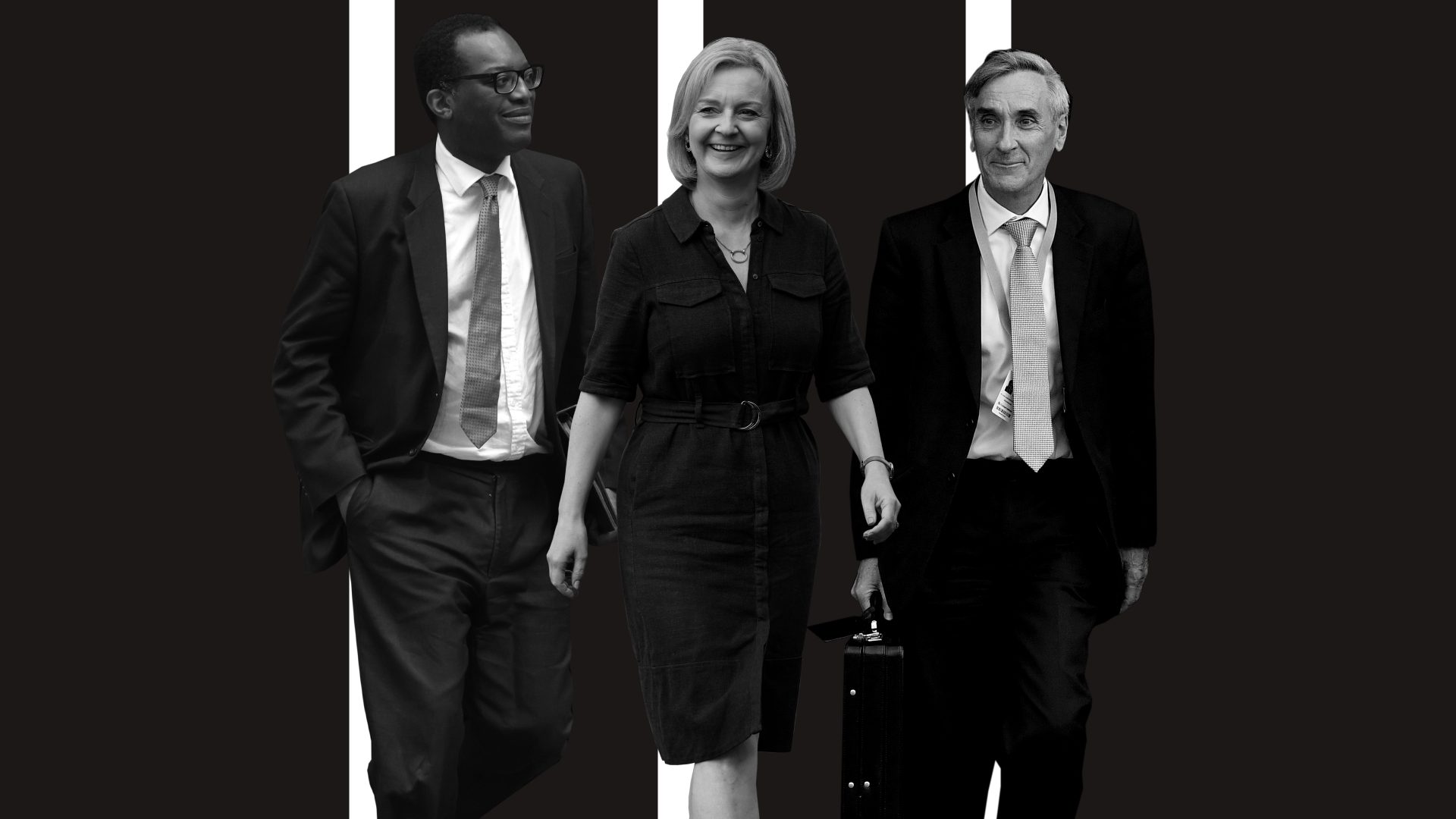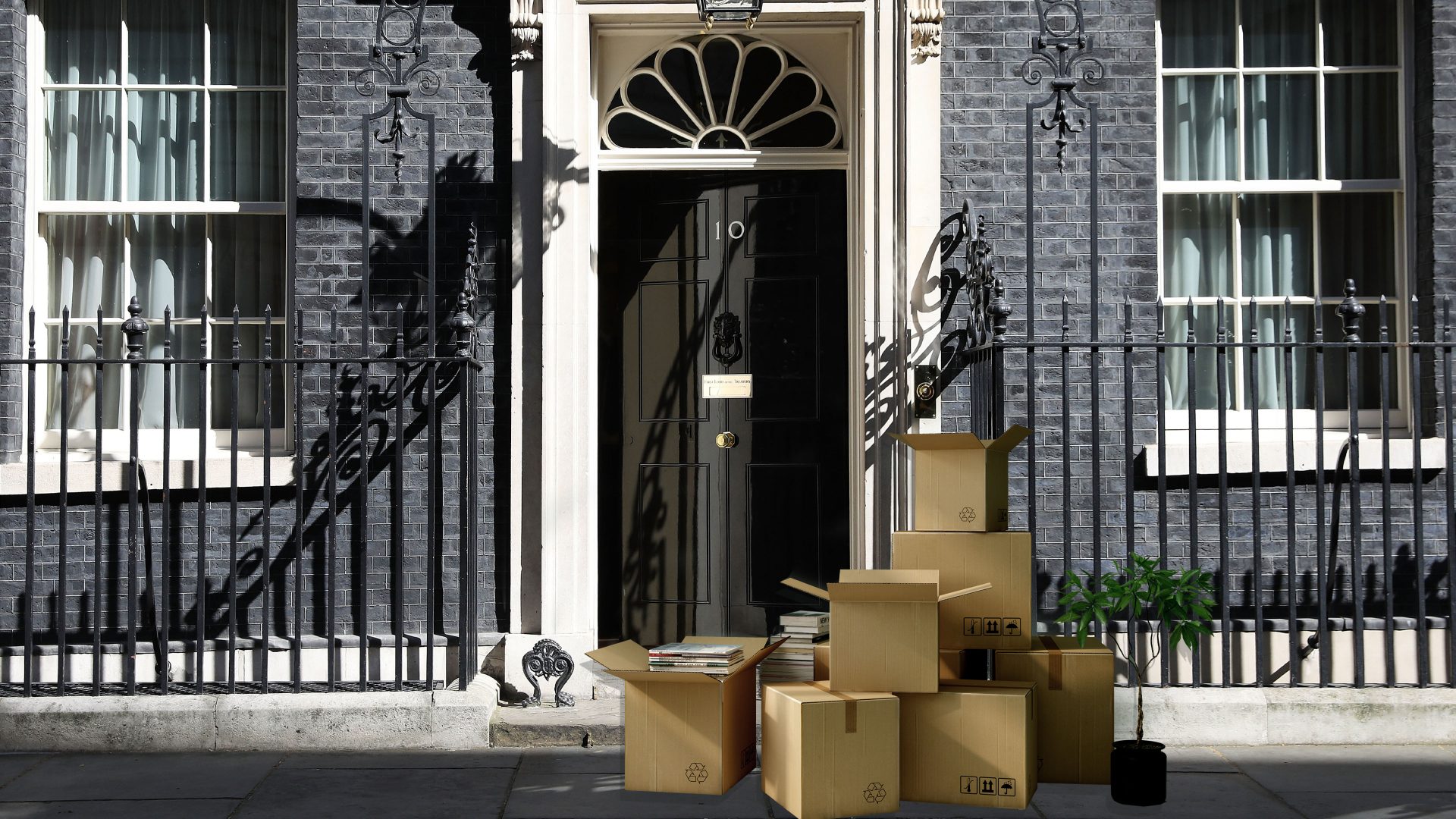It lasted less than a day. Liz Truss’s cunning attempt to paint herself as a Thatcherite slasher of bloated bureaucratic fat cat salaries – which turned out to mean financing her tax cuts by reducing the pay of every future soldier, sailor, police officer, firefighter, teacher and NHS worker outside London – wasn’t quite the vote winner she thought.
It reeked of callousness. It reeked of incompetence. As one of her opponents put it very neatly: “It is hard to tell if she can’t count, or just hates nurses.” An embarrassing U-turn quickly followed.
What’s been left out, though, is where else Truss is going to find the £8.8bn that she claimed this policy would save. She has already committed to £30-35bn in tax cuts on day one and an increase in the defence budget of £23bn a year by 2030. All of it apparently available through “efficiency savings”, borrowing more and cutting the size of the state. Losing £8.8bn of those savings in one morning does not bode well. And this is without factoring in the money that will be needed when Truss inevitably U-turns on extra help with fuel bills.
The obvious cause of this disaster is that Truss has chosen to take on some strange advice. The regional pay boards idea seems to have come straight from the TaxPayers’ Alliance, a secretive, right wing “think tank”, which taxpayers can’t join and which seems to think the solution to each and every problem is to slash tax.
Truss has also picked Professor Sir Patrick Minford as an economic guru, possibly because she is trying to cosplay being the Iron Lady and he used to advise the real thing. But anyone who thought his advice might have involved a Thatcherite emphasis on balancing the books will have been disappointed. The prof is now in favour of borrowing more in order to fund tax cuts. The fact that, as the Institute for Fiscal Studies pointed out only last week, neither candidate has made it clear that “ultimately, lower taxes mean lower spending” is lost on this lot.
Minford and Truss also seem blasé about the Bank of England increasing interest rates. In fact, Minford sees it as a good way of getting rid of zombie companies; ones that would have gone bust if they weren’t propped up by cheap money. This, the argument goes, is good for the economy because bad companies will be replaced by better ones.
The economic transition would, of course, be extremely painful, but then Minford is quite cheerful about things like that. He was the Brexit advocate who said it would “mostly eliminate manufacturing” in the UK, “but this shouldn’t scare us.” His verdict on the British motor industry was: “You are going to have to run it down. It will be in your interests to do it, just as in the same way we ran down the coal and steel industries.”
Minford is not an adviser chosen to make the Tory party look or sound cuddly and caring.
But to turn these promises into policies, prime minister Truss would also have to find a chancellor who is compliant and will tear up the rules to let her get her way.
Step forward Kwasi Kwarteng, a long-time close friend and co-author with her and several other Tory MPs of Britannia Unchained. This controversial polemic was written in 2012 and characterised the UK as beset by a “bloated state, high taxes and excessive regulation”. It then accused British workers of being “among the worst idlers in the world”.
Kwarteng is, therefore, just the kind of person who will give the PM and her Brexit supporters what they want. He will back slashing the civil service, again, cut taxes whether the country can afford it or not and will join in the Brexit fantasy of yet another bonfire of red tape.
The fact he is an old Etonian classics scholar with a reputation for self-publicity and a willingness to say anything to get ahead – remind you of anyone? – should set the alarm bells ringing.
Kwarteng does, however, have the advantage of not being John Redwood, one of the original Brexit “bastards” from John Major’s cabinet, who is being touted for No 11 – or at the very least, a key role as an economic adviser – by the Express and Telegraph. He also has the support of both Ukip and the European Research Group (ERG), which tells you all you need to know.
At 71, he is a dyed-in-the-wool Thatcherite and Eurosceptic ultra whose wish list includes further cuts to immigration – normally seen as bad for growth – as well as automating the railways as a way of destroying union power and buying British. Redwood believes that the EU has deliberately destroyed the UK’s apple orchards and Brexit should see their triumphant return – a Brexit Bramley bonus, if you will. Doubtless, our bountiful new apple orchards will revitalise whole sectors of the British economy.
Underlying his every economic thought is that everything from the NHS to the army is so badly run that if only a competent manager – like him or possibly the private sector – could get their hands on the books, there would be more than enough money for everything we wanted and huge tax cuts too. It is a perennial right wing fantasy that bears as much relationship to reality as Redwood’s mumblings did to the Welsh national anthem.
Still, even if Kwarteng or Redwood get their shaky hands on the nation’s money, Truss has also indicated that the new chancellor may not be quite as important as previous ones. Boris Johnson lost a chancellor because Sajid Javid insisted on the power to appoint his own Spads and advisers. Truss wants to go further and destroy the power of the Treasury.
She, like many on the right, sees it as far too cautious and full of Remainiac traitors. They will be purged and replaced with true believers who will do No 10’s bidding.
She has also toyed with the old idea of splitting the Treasury up, into two departments: a finance ministry and an economics ministry. The danger with this is that the PM and other ministers get to dominate the economics ministry and then just demand the finance ministry gives them the money they want.
As even the Treasury’s fiercest critics point out, you need at least one senior cabinet post that is interested in sound money and balancing the books. Splitting HM Treasury in two destroys that power and leaves the spending departments and the PM’s economic advisers in charge. And is a global financial crisis really the best time to tinker with how Britain runs its money?
Truss and her supporters are economically illiterate. Yet they do have a plan. They want the UK to take part in a race to the bottom, cutting regulation, standards and safeguards to try to make Britain’s economy more efficient. At the moment they can’t do that because of the level playing field provisions of the EU-UK Trade and Cooperation Agreement (TCA) – if the UK undercuts the EU’s standards, it can then ban or put tariffs on our products.
This is the real purpose of Truss’s Northern Ireland Protocol bill: to pick a fight with the EU and tear up the whole deal, including the Trade and Cooperation Agreement.
In the eyes of people like Truss, Redwood and Kwarteng, this would allow Britain to cut health and safety standards, employment protections, wages and rules and regulations. It would be a bonfire of red tape (and benefits for workers, but don’t mention that). Freeports would prosper and the UK would become Singapore-on-Thames, a giant low-tax, low-regulation economy that would take on the EU and win.
It is a sad fantasy. First, because without the TCA, the EU would and could put tariffs on UK exports and refuse to accept products not built to its standards or under environmental and worker safeguards as good as its own.
The idea that the UK can abolish, let’s say, EU regulations on the safety of surgical instruments and not replace them with near-identical UK regulations on surgical instruments is ridiculous. Even if it did seriously weaken or abolish the regulations, manufacturers would follow EU standards anyway because otherwise they couldn’t sell in the EU or anywhere else. Telling patients that the surgical instruments their surgeon is about to use are cheap but unsafe would go down about as well as Truss’s cunning pay board plan.
Also, why the UK would prosper as a giant entrepôt on the edge of Europe when it has just erected huge barriers to its trade with Europe is not explained.
The Conservatives’ supposed strengths down the decades – financial prudence and having a big tent of ideas – have been replaced with a Brexit bivouac full of unfinanced giveaways and too small for any sensible ideas at all.
But this is the course we seem irrevocably stuck on. How can the new PM possibly back down from all the promises made at the hustings, while pandering to a rabidly anti-EU and economically illiterate electorate?
All this means that Truss is willing to take a huge gamble with the British economy, double down on Brexit and shred the UK’s reputation for sound economic management, honesty and reliability; all during the worst cost-of-living crisis in decades.
What can possibly go wrong?




